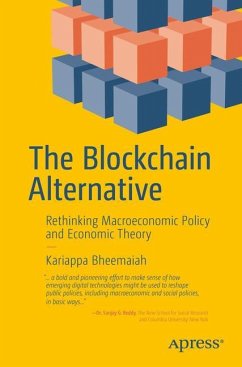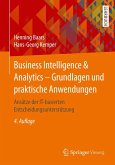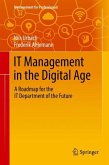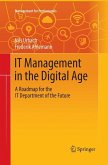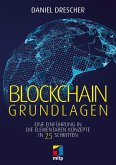Examine what would happen if we were to deploy blockchain technology at the sovereign level and use it to create a decentralized cashless economy. This book explains how finance and economics work today, and how the convergence of various technologies related to the financial sector can help us find solutions to problems, such as excessive debt creation, banks getting too big to fail, and shadow banking. The Blockchain Alternative offers sensible corrections to outdated and incorrect dogmas, such as the efficient markets hypothesis and rational expectations theory. You'll also be introduced to universal basic income, the consequences of going cashless, why complexity economics needs to be understood and what kinds of tools and theories you'll need to redefine the existing definition of capitalism.
While the book does discuss technologies and methods that are primed for our future, a number of references are made to economic history and the works ofgreat thinkers froma different era. You'll see how the blockchain can be used to deploy solutions that were devised in the past, but which can serve as the antidote to our current economic malaises. You'll discover that what is required today is not an adaptation of the old theories, but a new methodology that is suited to this new era. Without undertaking such an endeavor, one will always be burdened with a definition of capitalism that is out of kilter with the evolution of our digital humanity.
What would this mean to monetary and fiscal policy, market structure and our current understanding of economics? More importantly would we need to change our current understanding of capitalism? And if we were to change our perceptions, what would the future version look like? This book answers these questions, and analyses some of the most pertinent issues of our generation.
What You'll Learn
Examine fractional banking, debt,and the financialization of assets
Gain a firm understanding of the "too big to fail" theory, smart contracts, and Fintech
Review economics and agent-based modelling
Use the blockchain and complexity economics to rethink economics and capitalistic systems
Who This Book Is For
The primary audience is bankers and other finance professionals, policy makers, and students of finance and economics. The secondary audience is anyone seeking a deeper understanding of the current financial system, the blockchain, and the future of capitalism.
Praise for The Blockchain Alternative
"...a bold and pioneering effort to make sense of how emerging digital technologies might be used to reshape public policies, including macroeconomic and social policies, in basic ways. Everyone interested in thisvery important emerging question should read this book."
- Dr. Sanjay G. Reddy, Associate Professor of Economics at The New School for Social Research and Research Associate of the Initiative for Policy Dialogue at Columbia University.
"Writing on blockchain today is analogous to writing about the internet, before it became massively distributed. The book pushes us to think about the quantum leap that this technology may infer to our capitalist model, if scaled at the pace described by the book. Written with the support of strong empirical models but also with an open mind towards the future, this is a must read for anyone interested in becoming part of the new economic infrastructure"
- Dr. Mark Esposito, Harvard University's Division of Continuing Education & Judge Business School, University of Cambridge
"With a rigorously balanced dosage of versatility and rationa
While the book does discuss technologies and methods that are primed for our future, a number of references are made to economic history and the works ofgreat thinkers froma different era. You'll see how the blockchain can be used to deploy solutions that were devised in the past, but which can serve as the antidote to our current economic malaises. You'll discover that what is required today is not an adaptation of the old theories, but a new methodology that is suited to this new era. Without undertaking such an endeavor, one will always be burdened with a definition of capitalism that is out of kilter with the evolution of our digital humanity.
What would this mean to monetary and fiscal policy, market structure and our current understanding of economics? More importantly would we need to change our current understanding of capitalism? And if we were to change our perceptions, what would the future version look like? This book answers these questions, and analyses some of the most pertinent issues of our generation.
What You'll Learn
Examine fractional banking, debt,and the financialization of assets
Gain a firm understanding of the "too big to fail" theory, smart contracts, and Fintech
Review economics and agent-based modelling
Use the blockchain and complexity economics to rethink economics and capitalistic systems
Who This Book Is For
The primary audience is bankers and other finance professionals, policy makers, and students of finance and economics. The secondary audience is anyone seeking a deeper understanding of the current financial system, the blockchain, and the future of capitalism.
Praise for The Blockchain Alternative
"...a bold and pioneering effort to make sense of how emerging digital technologies might be used to reshape public policies, including macroeconomic and social policies, in basic ways. Everyone interested in thisvery important emerging question should read this book."
- Dr. Sanjay G. Reddy, Associate Professor of Economics at The New School for Social Research and Research Associate of the Initiative for Policy Dialogue at Columbia University.
"Writing on blockchain today is analogous to writing about the internet, before it became massively distributed. The book pushes us to think about the quantum leap that this technology may infer to our capitalist model, if scaled at the pace described by the book. Written with the support of strong empirical models but also with an open mind towards the future, this is a must read for anyone interested in becoming part of the new economic infrastructure"
- Dr. Mark Esposito, Harvard University's Division of Continuing Education & Judge Business School, University of Cambridge
"With a rigorously balanced dosage of versatility and rationa
"The book is based on a clear understanding of systemic links established behind today's economic scene, an unsophisticated approach to blockchain technology, and diverse multidisciplinary documentation. A small part of the bibliographical material is presented in the text as large extracts from academic papers or official documents and policymaker or business representative statements. As a result, the work is easy to understand by a large audience and also a must-read for those who study or work in the financial sector." (Computing Reviews, October, 2017)

